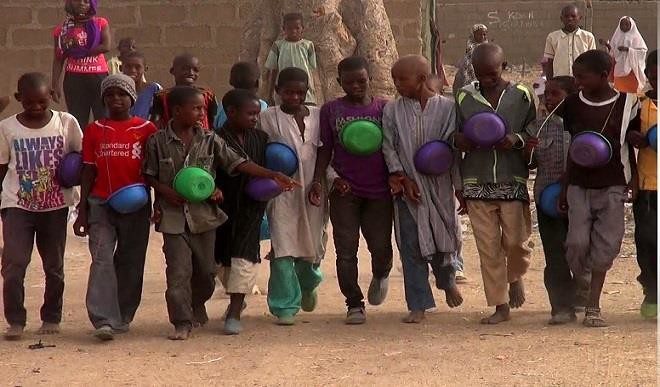Global Issues
The Dangers Of Human Trafficking In Northern Nigeria -By Mustapha Abdulrazak
In Nigeria, children make up the largest group of trafficking victims. They are trafficked for many
reasons, from domestic service, sexual exploitation, being used as child soldiers, forced begging, organ harvesting and even forced surrogacy in “baby farms” where they are impregnated and made to give birth. Of the people trafficked in Nigeria, the highest proportion are girls between the ages of 12 and 17.
The vast majority, like the victims, are transported within Nigeria.

The trafficking of children in Nigeria for domestic service, sex work and forced surrogacy is rampant and lucrative.
An instance happen says her uncle’s wife told her that they wanted to take her with them to Lagos, where she’d be taken care of and sent to university.
“With so many promises, I was very, very excited,” she says, shyly, telling her story for the first time. “I immediately said I wanted to go with them.”
At the time, it happens that the girl was 16 and living Nigeria’s north, in a rural village about 350 kilometers (210 miles) from the bustling commercial capital, Kaduna.
Her life at home was hard. Her parents struggled to provide enough food for her and her 10 siblings and were quick to agree to her move.
The girls falls silent — for a long, long time. When she starts talking again, her words tumble over each other in her effort to get them out.
What has happened since was nothing like what she was promised, she says.
Instead of attending school, she wakes now at 3 a.m., her days passing in a blur of domestic chores and babysitting her uncle’s triplets.
She gobbles down her food to avoid getting in trouble for loafing — she fears the punishment. Once when she didn’t get out of the car quickly enough, her aunt slammed the car door on her hand. Despite the excruciating pain in her fingers, that evening she still had to wash the triplets’ clothes by hand.
To add to the horror of her life in Kaduna, she is sexually abused by her uncle. He barges in on her while she is bathing and enters her room late at night.
“Even when I try to stop it by locking my door inside before I sleep, it was a problem because he then starts treating me badly and then told me I shouldn’t ever lock the door when I’m sleeping,” she says.
“Every night before I sleep, I always cry and wet my pillow,” she says, adding that she can’t even ring her parents to tell them what is happening because she doesn’t have a phone, or the money, to make a call.
The girl, who has been working for her uncle’s family for four years now, is a victim of child trafficking.
That is when children and young people are tricked, forced or persuaded to leave their homes, and are then moved somewhere and exploited for someone else’s gain.
In Nigeria, children make up the largest group of trafficking victims. They are trafficked for many
reasons, from domestic service, sexual exploitation, being used as child soldiers, forced begging, organ harvesting and even forced surrogacy in “baby farms” where they are impregnated and made to give birth. Of the people trafficked in Nigeria, the highest proportion are girls between the ages of 12 and 17.
The vast majority, like the victims, are transported within Nigeria.
Whether someone moves 10 kilometers from one community to another, or thousands of kilometers to another continent, the “common denominator” for human trafficking is “exploitation,”
As this case is often relatives, friends or trusted community members who either directly exploit trafficked children, or who procure the child for someone else.
Poverty is seen as the root cause of making children vulnerable to trafficking.
Mustapha Abdulrazak
Abubakar Tatari Ali Polytechnic Bauchi.


















